SKIN CONCERNS
What is Acne Scarring?
Acne scarring is a common issue for many who have had severe or long-lasting acne. While some people get through their teen years with just a few pimples, others suffer from acne that can leave deep and noticeable scars. These scars can last for years, serving as a constant reminder of their struggle with acne.
skin concerns
What is Acne Scarring?
Acne scarring is a significant concern for many who've battled with acne, a widespread skin condition that affects most people at some point in their lives. While some navigate their teenage years with minor blemishes, others face a more intense struggle with acne that can lead to deep scars, lasting well into adulthood. Acne scarring not only affects the skin's appearance but can also deeply impact a person's self-confidence. Although there is no definitive cure for acne itself—which involves blackheads, whiteheads, and more severe pus-filled spots—it's crucial to address it early and effectively to prevent scarring. Acne typically starts during puberty but can persist beyond the early twenties for some. The condition results from a combination of clogged pores, excess sebum production, and bacteria on the skin, which together can cause significant and sometimes scarring breakouts.
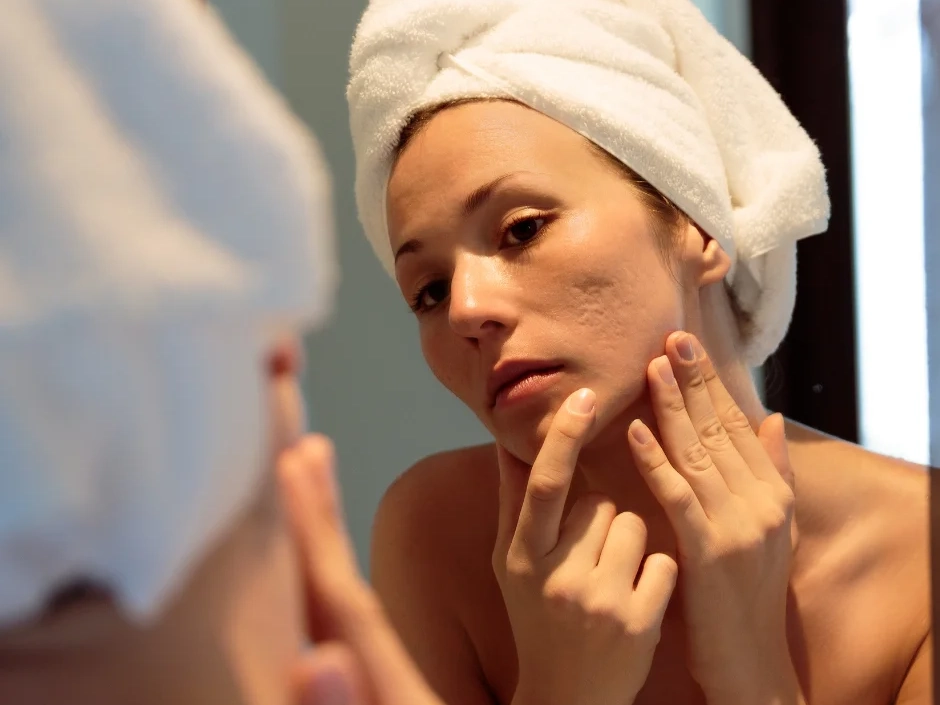
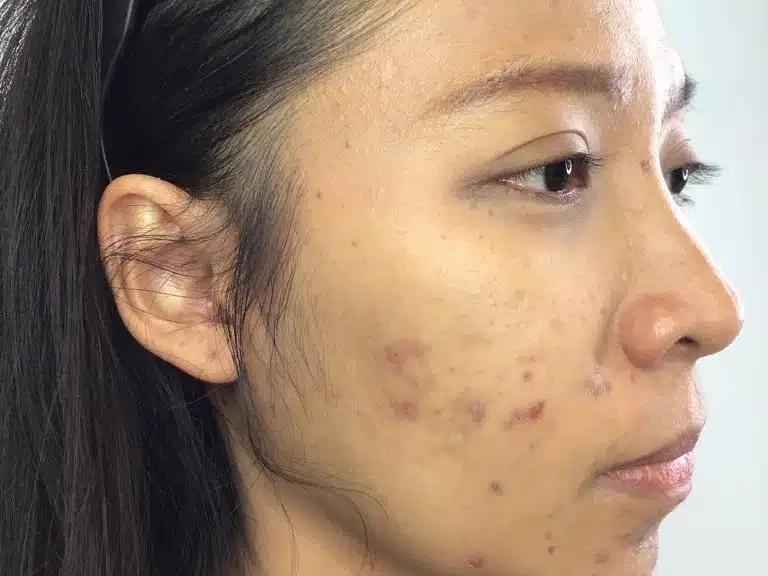
skin concerns
Are you affected?
Acne scarring is a significant concern for many who have experienced severe or persistent acne, underscoring the importance of specialized treatments and skincare routines tailored to mitigate and heal these scars. FTT Skin Clinics excels in offering advanced solutions for those dealing with acne scarring, providing personalized care designed to not only treat the scars but also prevent future occurrences. Our holistic approach to managing acne scarring includes an in-depth analysis of acne's underlying causes, ensuring we target the scarring at its source for more effective and lasting results. We feature a range of solutions, from cutting-edge topical applications to innovative technological therapies, all customized to suit your specific skin needs and the extent of scarring. Beyond mere treatment, our guidance encompasses comprehensive strategies for acne scar prevention, aiming to sustain clear, smooth skin and avert the recurrence of acne and its lasting marks.
Causes
Acne scarring often arises as a direct consequence of the acne formation process. When the skin's tiny hair follicles become clogged with excess sebum, dead skin cells, and bacteria, it sets the stage not just for acne but for the scarring that can follow. The development of acne, heavily influenced by hormonal factors like androgens, can lead to inflammation and the subsequent breakdown of surrounding skin tissue. As the body attempts to repair these lesions, it can lead to the uneven skin texture and depressions known as acne scars. Teenagers and young adults are particularly susceptible to this form of scarring due to the hormonal changes experienced during these years. Proactively incorporating acne management strategies and treatments into your skincare routine can significantly mitigate the risk of scarring, fostering the maintenance of smoother, healthier-looking skin.
Hormonal Influences on Acne Scarring
Hormonal fluctuations are a prime catalyst for acne, which, if left untreated or managed poorly, can lead to acne scarring. During puberty, pregnancy, menstruation, and even through periods of stress, the body experiences shifts in hormone levels, particularly androgens. These hormones stimulate the sebaceous glands in the skin, leading to increased oil production. When this excess oil combines with dead skin cells, it clogs pores, forming acne lesions that can eventually scar the skin. Managing these hormonal surges through lifestyle adjustments, medical treatments, or skincare routines can help mitigate the risk of developing persistent acne and subsequent scarring.
External Factors Contributing to Acne Scarring
Inadequate Skincare and Aggravation:
Improper skincare routines, such as harsh scrubbing, using comedogenic (pore-clogging) products, or neglecting daily cleansing, can exacerbate acne’s severity, increasing the likelihood of scarring. Gentle cleansing and the use of non-comedogenic skincare products are essential in preventing acne lesions that can lead to scars.
Environmental Aggressors:
Pollutants and high humidity levels can also contribute to the clogging of pores. These environmental factors can increase the skin’s oiliness and exacerbate acne conditions, making effective cleansing and protective skincare routines crucial in urban or highly polluted areas to prevent acne and reduce the risk of scarring.
Understanding these causes and taking proactive steps to manage acne effectively are vital in preventing the formation of acne scars. At FTT Skin Clinics, our approach to acne scarring encompasses a deep understanding of these underlying causes, enabling us to offer targeted treatments and preventative strategies tailored to individual needs, promoting healthier skin and minimizing the impact of acne scarring.


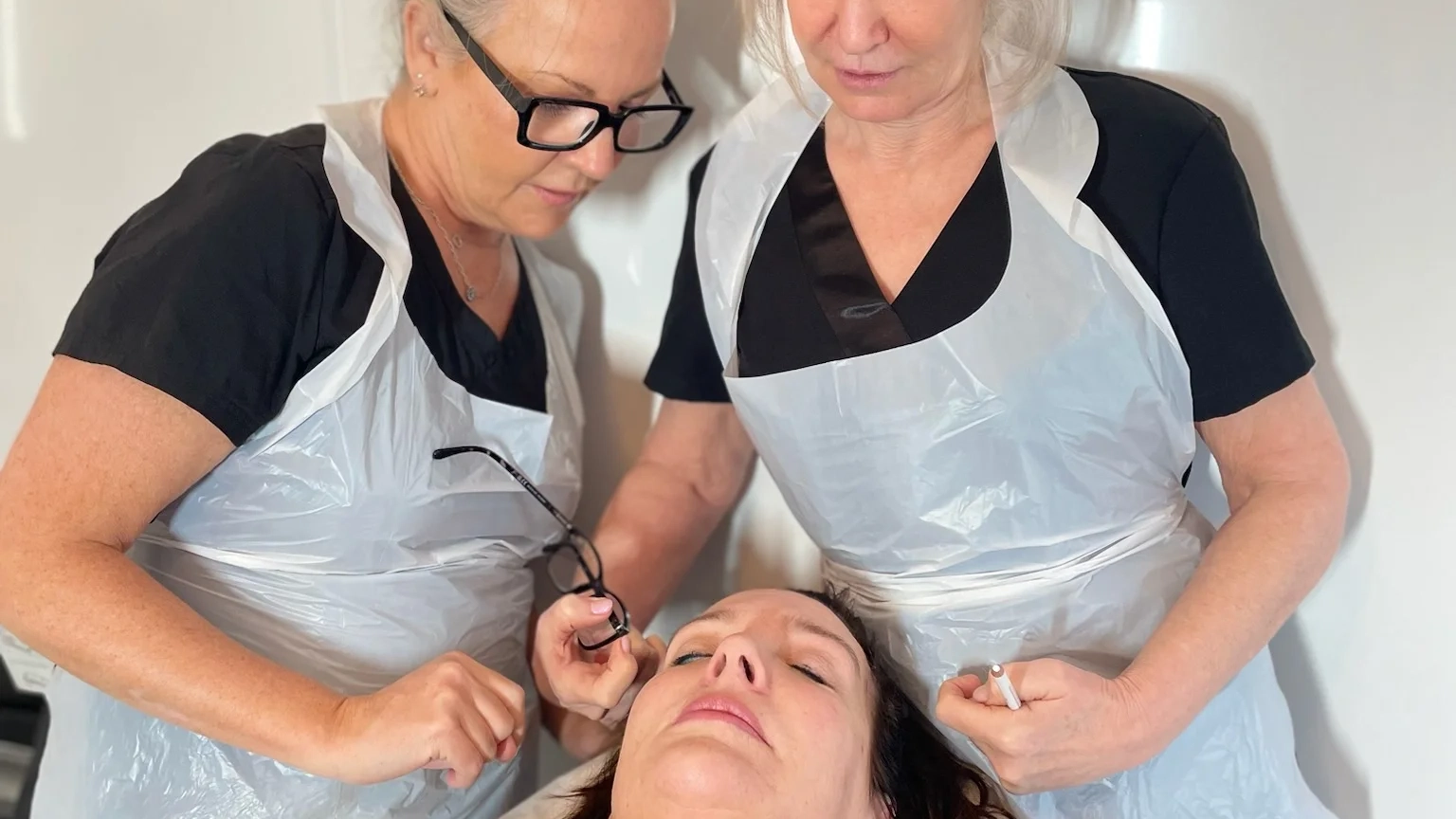

Frequently Asked Questions
What causes acne scarring?
Acne scarring occurs when acne lesions, such as cysts or nodules, damage the skin and the tissue beneath it. As the acne clears, the body tries to repair this damage, leading to scarring.
Are there different types of acne scars?
Yes, there are several types of acne scars, including atrophic (depressed) scars, hypertrophic (raised) scars, and post-inflammatory hyperpigmentation.
Can acne scars be prevented?
Preventing acne lesions from forming is the best way to prevent acne scars. This involves using the right skincare products, avoiding picking or popping pimples, and seeking early treatment for acne.
How can I treat acne scarring?
Treatment options vary depending on the type and severity of scarring and include topical treatments, chemical peels, laser therapy, microneedling, and, in some cases, surgical procedures.
Do home remedies work for acne scarring?
While some home remedies may help with mild scarring or discoloration, professional treatments are typically more effective for significant acne scarring.
Is it possible to completely remove acne scars?
While some treatments can significantly reduce the appearance of acne scars, completely removing them may not be possible. The goal of treatment is often to improve the appearance of scars, making them less noticeable.
How long does it take to see results from acne scar treatment?
The time it takes to see improvement depends on the type of treatment and the severity of the scarring. Some treatments, like laser therapy, may show results after a few sessions, while others may take several months.
Are acne scar treatments painful?
Some treatments may cause discomfort, but many options involve minimal pain. Your skincare professional can discuss pain management options with you.
Can acne scars worsen over time if untreated?
Untreated acne scars may appear more noticeable as the skin loses collagen with age. However, they don’t necessarily worsen; their visibility can increase due to changes in skin texture and elasticity.
Will insurance cover the cost of acne scar treatment?
Insurance coverage varies. Many consider acne scar treatments cosmetic and may not cover them. It’s important to check with your insurance provider.
Addressing acne scarring requires a personalized approach to determine the most effective treatment plan. At FTT Skin Clinics, our experts are dedicated to providing tailored solutions to help improve the appearance of acne scars, leveraging the latest in skincare advancements for optimal results.
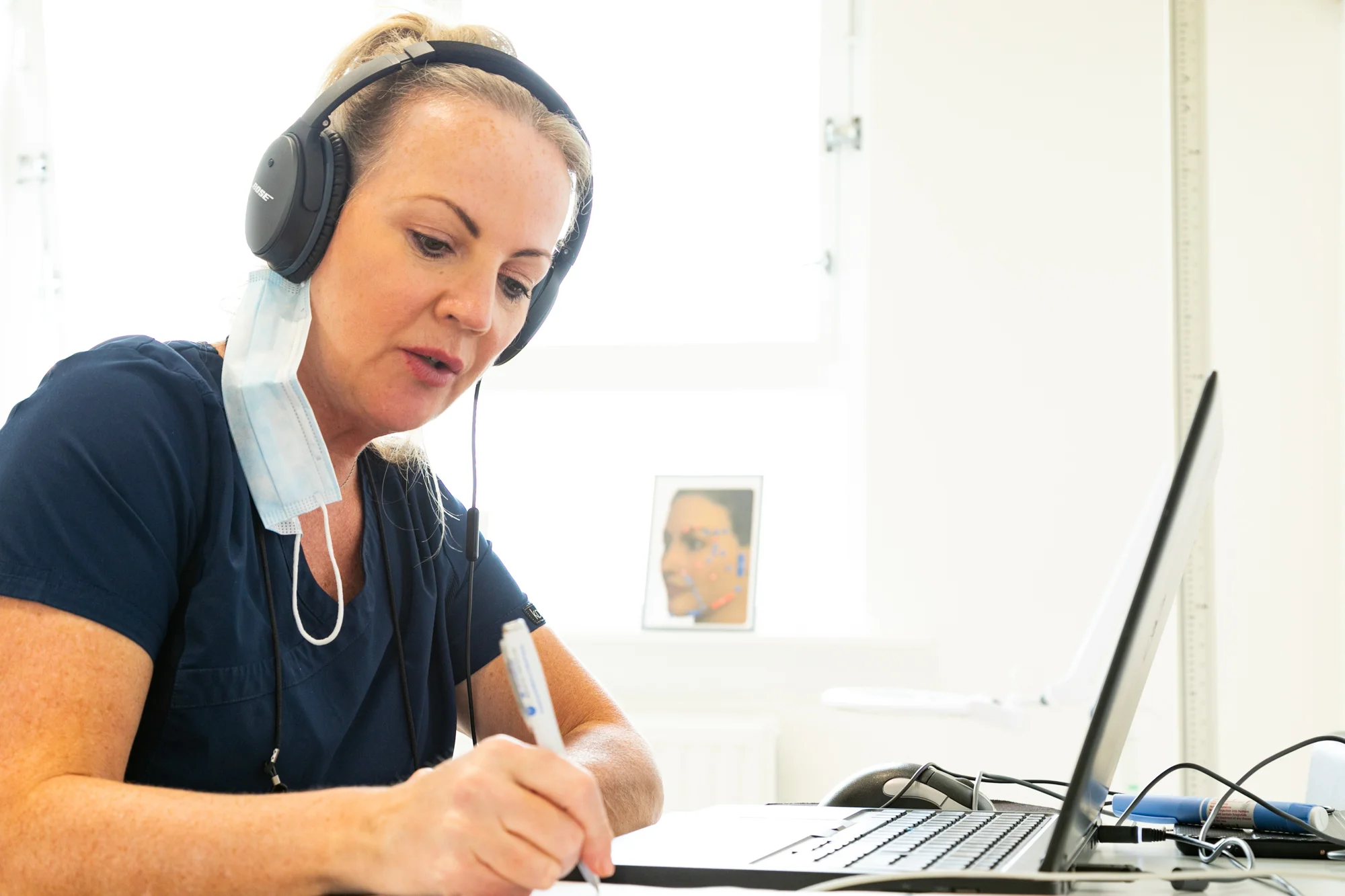
Acne Scarring Myths
Myth: Only severe acne can cause scarring:
Even mild acne can lead to scarring if not properly treated or if pimples are picked or popped. The severity of acne doesn’t always predict scarring, as individual skin healing properties also play a significant role.
Myth: Sun exposure will help fade acne scars:
Sun exposure can actually darken acne scars and make them more noticeable. UV rays stimulate melanin production, leading to further discoloration. It’s crucial to protect healing skin with sunscreen.
Myth: Acne scars are entirely preventable:
While early and effective treatment of acne can reduce the likelihood of scarring, some individuals are more prone to scars due to genetics and skin type. Preventative measures can reduce but not always completely prevent scarring.
Myth: Over-the-counter acne products are enough to treat acne scars:
Over-the-counter products may help mild scarring, but more significant scars often require professional treatments such as laser therapy, microneedling, or chemical peels, offered by skincare clinics like FTT Skin Clinics.
Myth: Acne scars are permanent and cannot be treated:
While some acne scars can be challenging to treat, advancements in dermatological treatments have made it possible to significantly improve their appearance. A combination of professional treatments can lead to substantial improvements.
Myth: Picking at acne won’t lead to scarring if done “correctly”:
Picking or attempting to pop acne can cause immediate damage to the skin and increase the risk of infection and scarring. It’s best to leave blemishes alone and let them heal naturally or seek professional treatment.
How Can We Help?
Hydrofacial is a multi-step facial treatment that gently cleanses, exfoliates, extracts impurities, and hydrates the skin using water-based solutions and suction, leaving it refreshed, nourished, and glowing.
The Hydrofacial treatment offers a powerful solution for those dealing with acne scarring, employing a gentle yet effective approach focused on hydration and skin renewal. Here’s why Hydrofacial is a match for acne scar care:
Deep Cleansing and Gentle Exfoliation: Utilizing a lactic acid solution, Hydrofacial softly removes the outermost layer of dead skin, helping to smooth out acne scars without harsh scrubbing. This careful exfoliation is key in promoting a more even skin texture and reducing the appearance of scarring.
Hydration and Nourishment: Scars from acne can leave the skin feeling uneven and textured. The hydrating boost from Hydrofacial treatments infuses the skin with moisture, aiding in the softening and minimizing of acne scars and helping to restore a balanced complexion.
Anti-inflammatory Effects: Especially formulated to address the concerns of skin prone to acne and scarring, Hydrofacial includes ingredients like salicylic acid. These components are effective in reducing inflammation and promoting healing, which is crucial in the treatment of acne scars.
Personalized Treatment Plans: At FTT Skin Clinics, customization is at the heart of what we do. Each Hydrofacial treatment is tailored to the individual, with a thorough skin evaluation to ensure the procedure targets your specific scarring concerns. This approach ensures the Hydrofacial not only revitalizes and moisturizes your skin but also directly addresses and improves the appearance of acne scars.
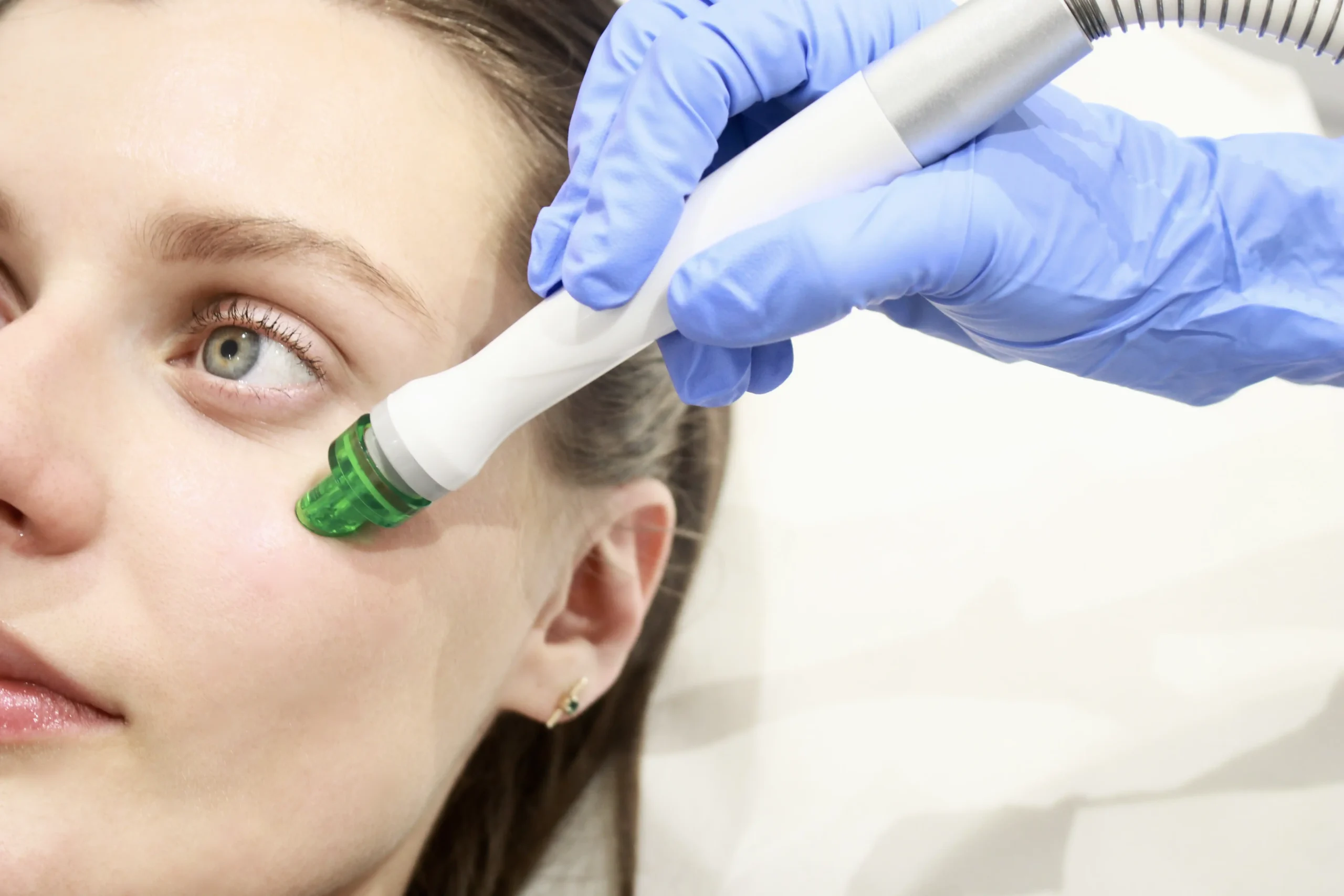
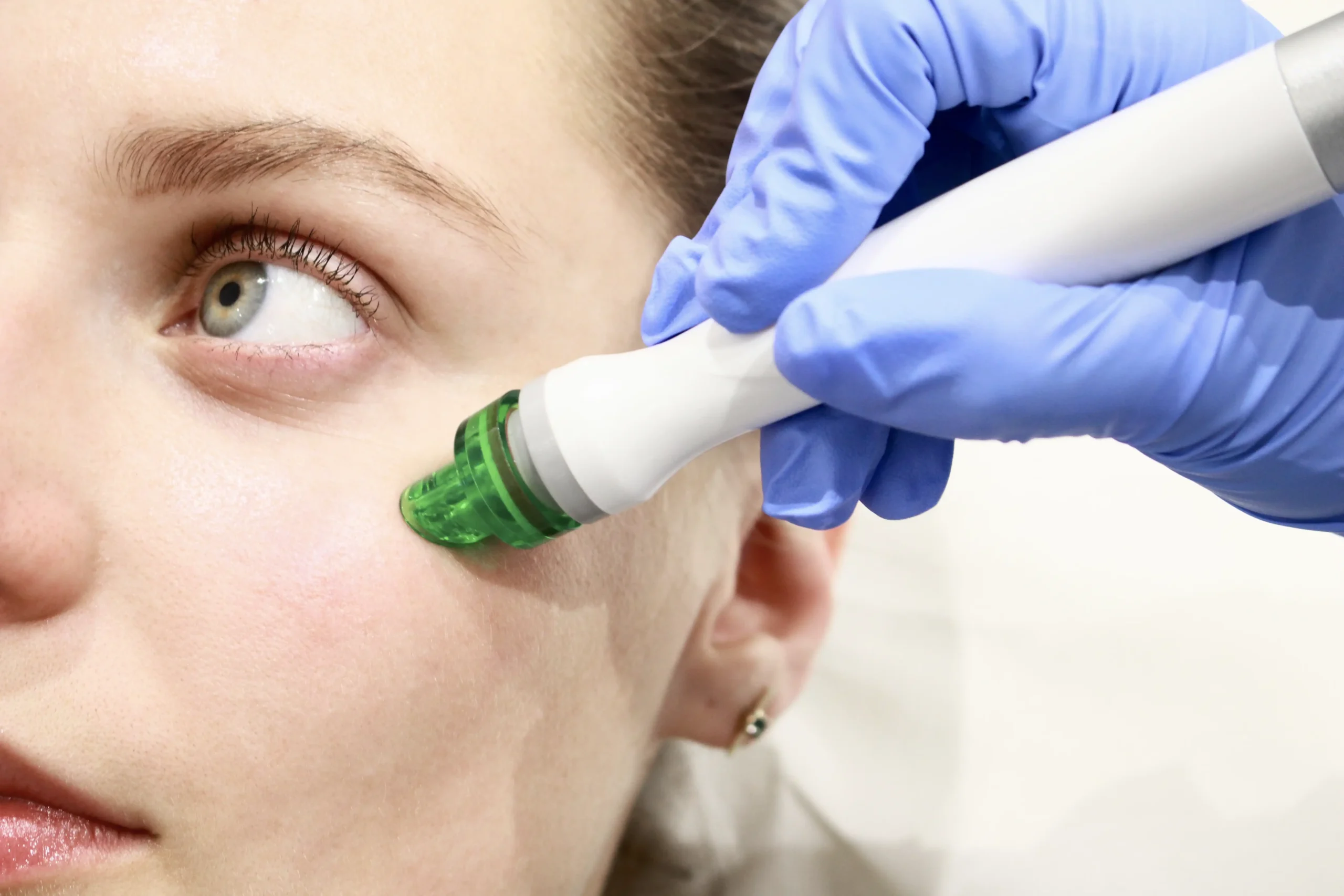
Treatment Time
30 Minutes
Visible Results
Immediate
Full Recovery
Immediate
Duration
1 Month
Sensitivity Time
Not Avaliable
Anaesthetic
Not Avaliable
Back to Work
Immediate
No. of Treatments
Monthly
Microneedling is a cosmetic procedure that involves creating tiny punctures in the top layer of the skin using fine needles. This minimally invasive treatment is designed to stimulate the skin’s natural healing process, leading to the production of collagen and elastin.
Microneedling is a minimally invasive skin rejuvenation procedure that involves the use of a device equipped with fine needles. These needles create tiny punctures in the top layer of the skin, which triggers the body’s natural wound healing processes. This response stimulates collagen and elastin production, crucial components in maintaining the skin’s structure and elasticity. By promoting the regeneration of new skin cells, microneedling can effectively improve the texture and appearance of the skin.
At FTT Skin Clinics, microneedling is utilized as a targeted treatment for acne scarring. The procedure’s ability to boost collagen production is particularly beneficial for acne scars, which often result from the loss of skin tissue. As the skin heals from the microneedling process, it becomes firmer and smoother, reducing the depth and visibility of scars. The increased collagen can also help to fill in indented scars or depressions left by acne, creating a more even skin surface.
Moreover, the tiny channels created by the microneedling process allow for better absorption of topical treatments. This means that any serums or skincare products applied post-procedure can penetrate deeper into the skin, enhancing their effectiveness. FTT Skin Clinics may combine microneedling with specific serums or growth factors that are known to aid in scar reduction and skin repair, further optimizing the treatment’s outcomes for acne scarring.
Tailored specifically to each client’s needs, microneedling sessions at FTT Skin Clinics can be adjusted in terms of needle depth and frequency, ensuring that the treatment is as effective as possible for the type and severity of acne scarring being addressed. With a series of treatments, patients can see significant improvements in the appearance of acne scars, leading to smoother, healthier-looking skin and a boost in confidence.
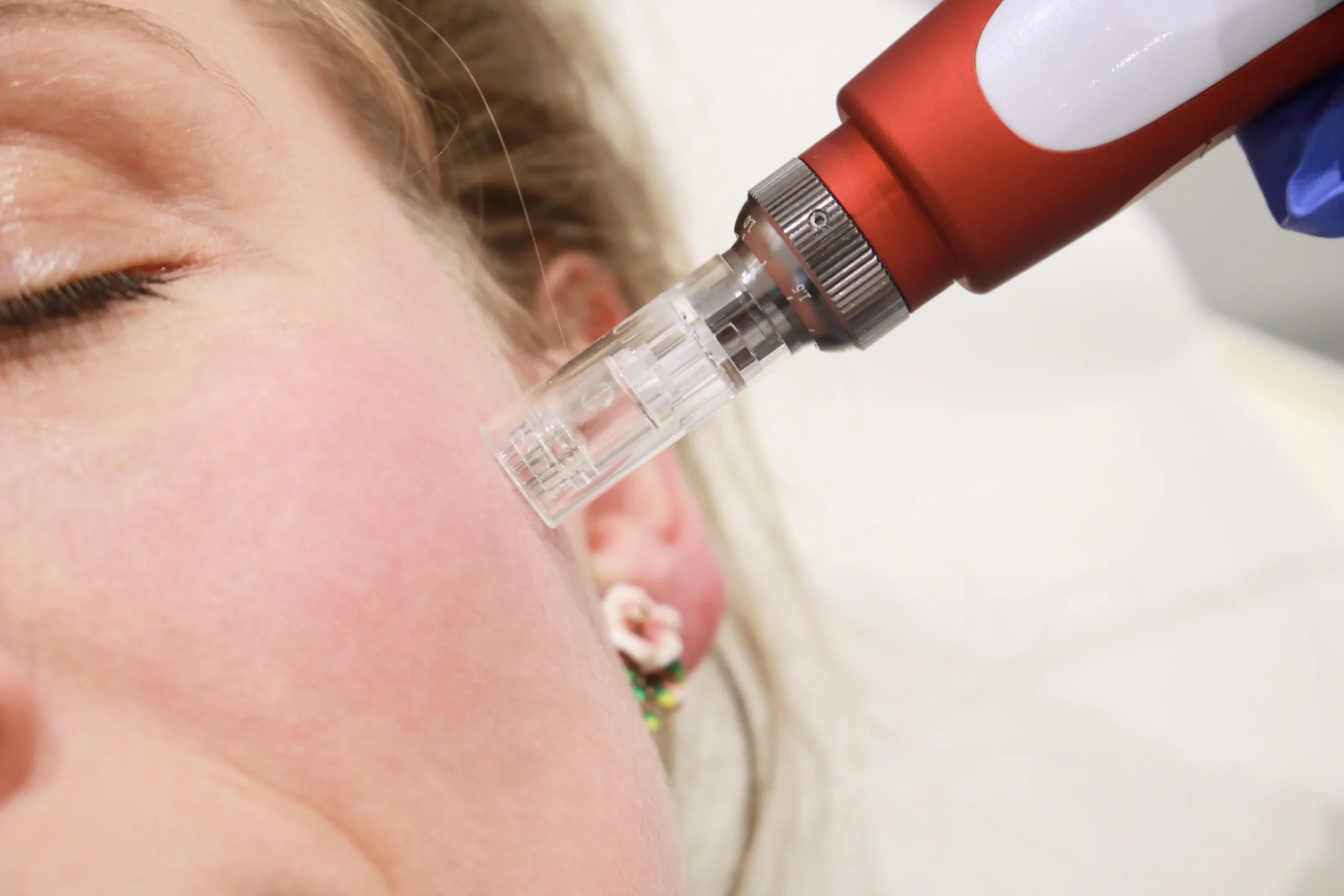
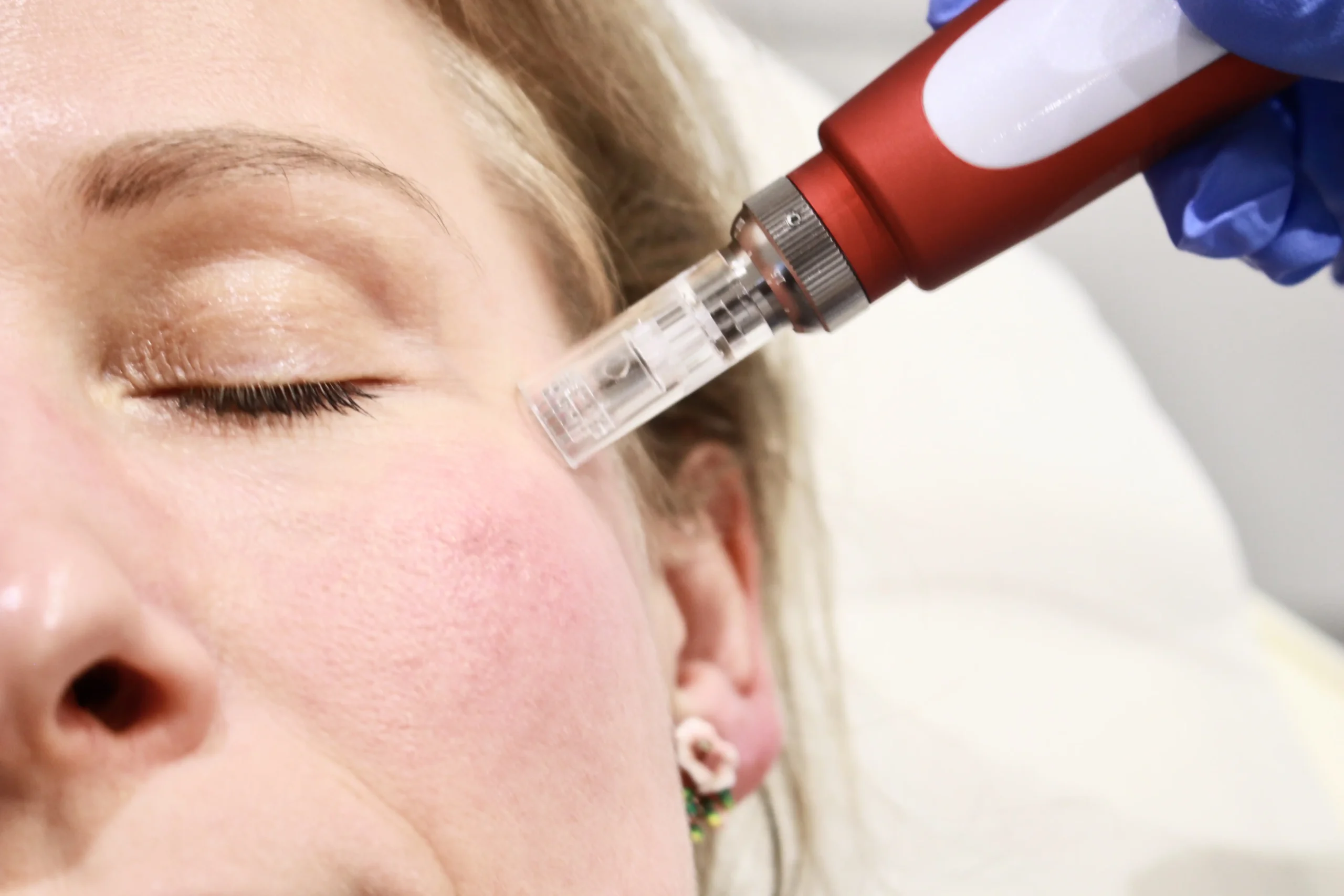
Treatment Time
30 Minutes
Visible Results
6 Weeks
Full Recovery
48 Hours
Duration
1 Year
Sensitivity Time
Up to 48 Hours
Anaesthetic
Local Injection
Back to Work
24 Hours
No. of Treatments
Treatment Plan
One of the cornerstone treatments we offer for managing and alleviating acne is professional extractions. This procedure involves carefully clearing clogged or obstructed pores, including blackheads, whiteheads, and the various forms of acne blemishes that can mar the skin’s appearance.
Extractions, a fundamental component of acne treatment, involve the careful removal of clogged pores, including blackheads, whiteheads, and other forms of acne lesions. While extractions themselves do not directly treat acne scars, they play a crucial preventative role at FTT Skin Clinics. By professionally removing acne-causing blockages, extractions help to prevent the formation of new acne lesions that could potentially lead to scarring.
In the context of acne scarring treatment, extractions are used to clear the skin of existing acne, creating a cleaner, more receptive surface for subsequent acne scar treatments. A clear complexion is essential for the effectiveness of treatments aimed at reducing acne scars, such as chemical peels, microneedling, and laser therapy. By minimizing active acne outbreaks, these treatments can work more effectively, promoting the skin’s healing process and the reduction of visible scars.
At FTT Skin Clinics, our skincare professionals understand the importance of treating acne at its source to prevent future scarring. Extractions are performed with precision and care, ensuring that the skin is not damaged in the process, which could otherwise contribute to scarring. Following extractions, our experts may recommend a tailored treatment plan that includes procedures specifically designed to target acne scars, helping to improve the skin’s texture and appearance.
Through a combination of extractions and targeted scar treatments, FTT Skin Clinics offers a comprehensive approach to managing acne and minimizing the risk of scarring. This holistic strategy ensures that clients not only achieve clearer skin but also address the underlying causes of acne, preventing new scars from forming and treating existing scars for healthier, smoother skin.
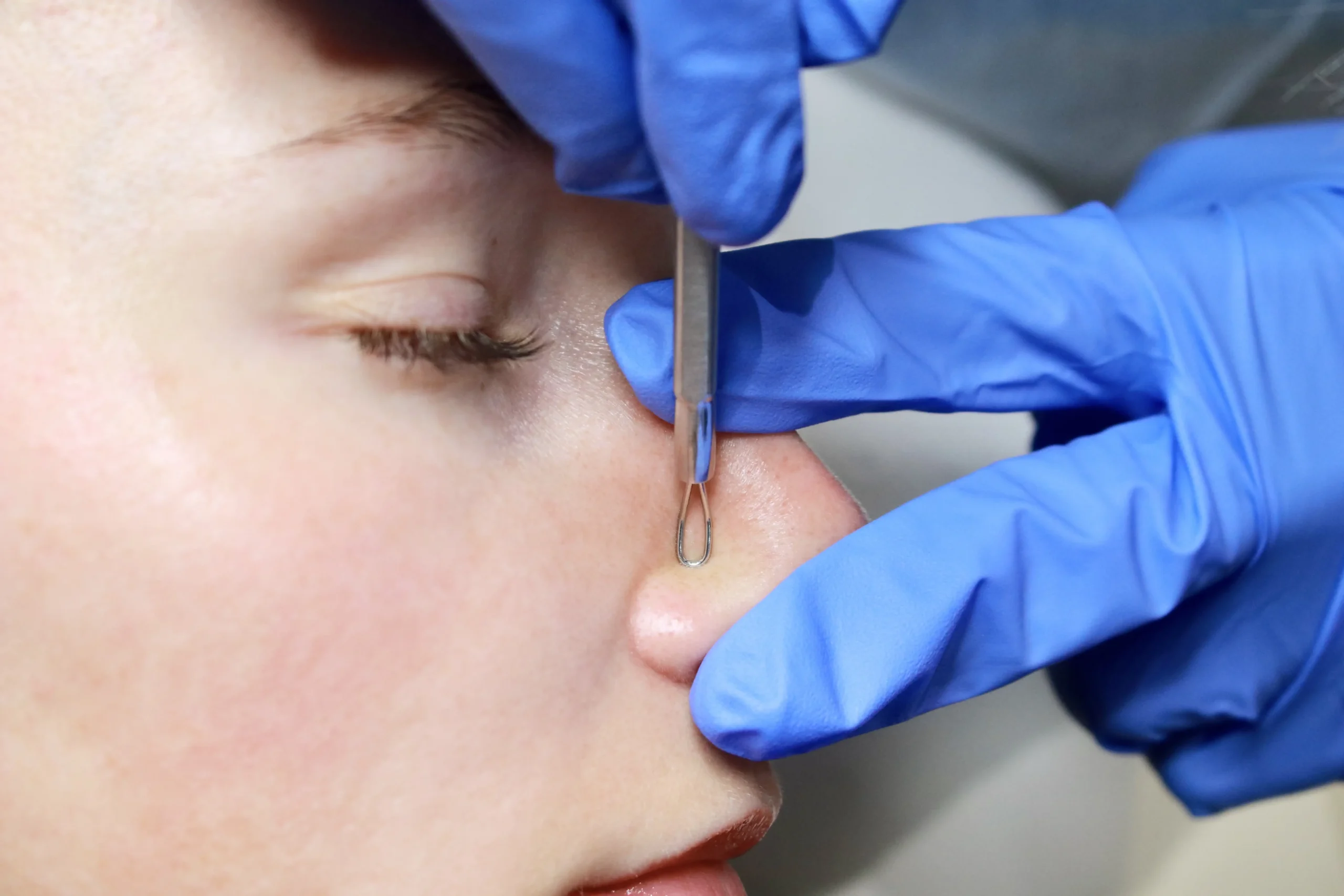
Treatment Time
30 Minutes
Visible Results
Immediate
Full Recovery
24 Hours
Duration
24 Hours
Sensitivity Time
24 Hours
Anaesthetic
None
Back to Work
Immediate
No. of Treatments
Monthly
The newest treatment within the Medical Aesthetics Space, forecasted to be one of the biggest and most popular this year. Polynucleotides target your skin cells producing Collagen and Elastin to give your skin the plumpness and youthful bounce it desires, as well as smoothing our skin and wrinkles.
By targeting skin cells responsible for producing Collagen and Elastin, Polynucleotides offer a dynamic solution to revitalize your skin, restoring its plumpness and youthful resilience while smoothing out the texture, including the crepey skin and wrinkles often resulting from acne scarring.
Acne scars, a common aftermath of severe or improperly treated acne, can leave the skin with uneven textures and depressions. The Polynucleotide treatment works by stimulating the fibroblasts in the skin, promoting cell renewal and enhanced collagen production. Made from purified fragments of fish DNA extracted from salmon or trout sperm—which closely mirrors human DNA—this treatment excels in encouraging skin repair and renewal, making it exceptionally suitable for those grappling with the visual remnants of acne.
By providing a boost in collagen and elastin synthesis, Polynucleotides effectively improve the skin’s elasticity and firmness, gradually reducing the appearance of indented acne scars and contributing to a smoother skin surface. Additionally, this treatment addresses skin dehydration and laxity, conditions that can exacerbate the appearance of acne scarring, by enhancing the skin’s hydration and overall tone.
At FTT Skin Clinics, the Polynucleotide treatment is not limited to the facial area. It can be applied to the neck, hands, décolletage, knees, and chest—areas where signs of aging and the effects of acne scarring can be most prominent. Beyond skin renewal, this advanced treatment also targets unstable molecules that accelerate the aging process, providing an all-encompassing solution for rejuvenated, healthier-looking skin.
For individuals seeking an effective remedy for acne scarring, Polynucleotides represent a promising option, offering a path to diminish scars and enhance skin quality. Each treatment session is tailored to the individual’s skin concerns, ensuring a personalized approach to achieving and maintaining smooth, revitalized skin.
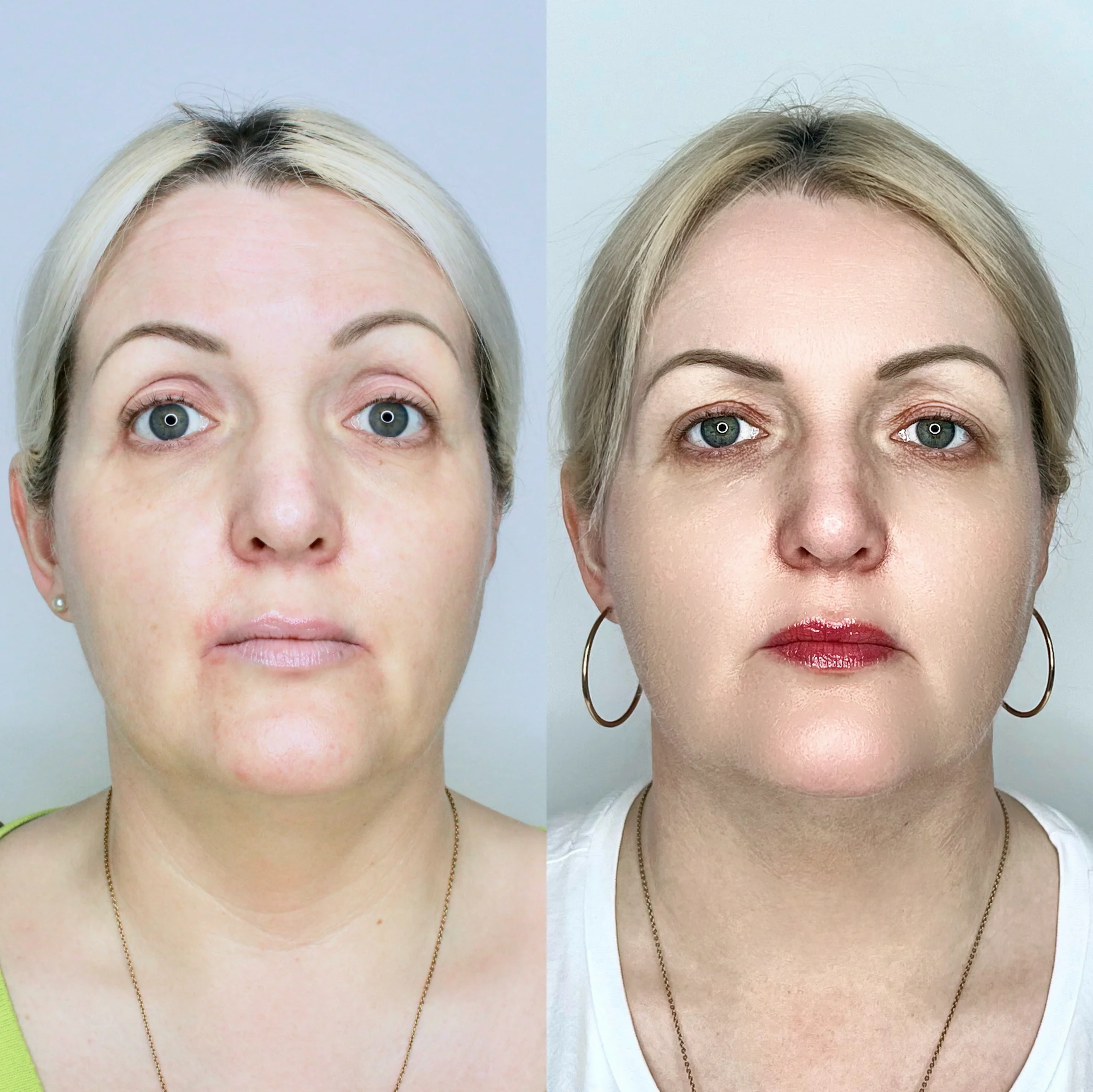
Treatment Time
30 Minutes
Visible Results
6 Weeks
Full Recovery
48 Hours
Duration
3 Months
Sensitivity Time
48 Hours
Anesthetic
Topical
Back to Work
24 Hours
No. of Treatments
Quarterly
SKIN CONCERNS
At Home Acne Scarring Care Tips
At FTT Skin Clinics, we empower you with practical tips to manage acne scarring and enhance the effectiveness of your skincare efforts. For those enduring the psychological impact of acne scarring, seeking support and adopting a positive skincare mindset are essential steps towards healing both skin and self-esteem.
Complementing our clinic treatments, we offer a wide range of skincare products designed to enhance and prolong the effects of your professional sessions. Our experts can recommend products tailored to your skin type, ensuring a seamless transition between clinic treatments and at-home care.
Your At-Home Skincare Routine for Acne Scarring
We believe in empowering you with the knowledge and tools for effective at-home skincare. Our specialists provide guidance on incorporating at-home treatments into your routine, ensuring continuity between clinic visits.
At FTT Skin Clinics, our commitment extends beyond the clinic doors. We are dedicated to supporting you at every step, from in-depth skin analyses to personalized treatments and ongoing skincare guidance. Discover the transformative potential of our treatments and embrace the journey to clear, radiant, and healthy skin. Break free from acne’s cycle with our evidence-based treatments and dedicated support, guiding you towards scar free, confident skin.
Sun Protection:
Protecting your skin from the sun is crucial. UV exposure can darken acne scars and make them more visible. Use a broad-spectrum sunscreen with at least SPF 30 daily to protect your skin and help prevent the darkening of scars.
Topical Treatments:
Over-the-counter creams and gels containing ingredients like retinol, vitamin C, niacinamide, and salicylic acid can help reduce acne scars by promoting cell turnover and collagen production, and reducing inflammation.
Gentle Exfoliation:
Regular, gentle exfoliation can remove dead skin cells and promote new cell growth. Products containing alpha hydroxy acids (AHAs) or beta hydroxy acids (BHAs) can be particularly effective. However, be careful not to over-exfoliate, as this can irritate your skin and worsen scars.
Natural Remedies:
Some natural ingredients have properties that may help reduce the appearance of acne scars. Aloe vera, for example, is known for its soothing and anti-inflammatory properties. Applying aloe vera gel directly to scars may help to soften and reduce them. Honey, particularly raw honey, is another natural ingredient that can be applied to scars due to its antibacterial and healing properties.
Hydration:
Keeping your skin well-hydrated can improve its texture and reduce the appearance of acne scars. Use a non-comedogenic moisturizer to keep your skin hydrated without clogging your pores.
Avoid Picking and Touching:
Picking at scars or acne can worsen scarring by damaging the skin further. It’s important to resist the urge to pick and to keep your hands away from your face as much as possible.
